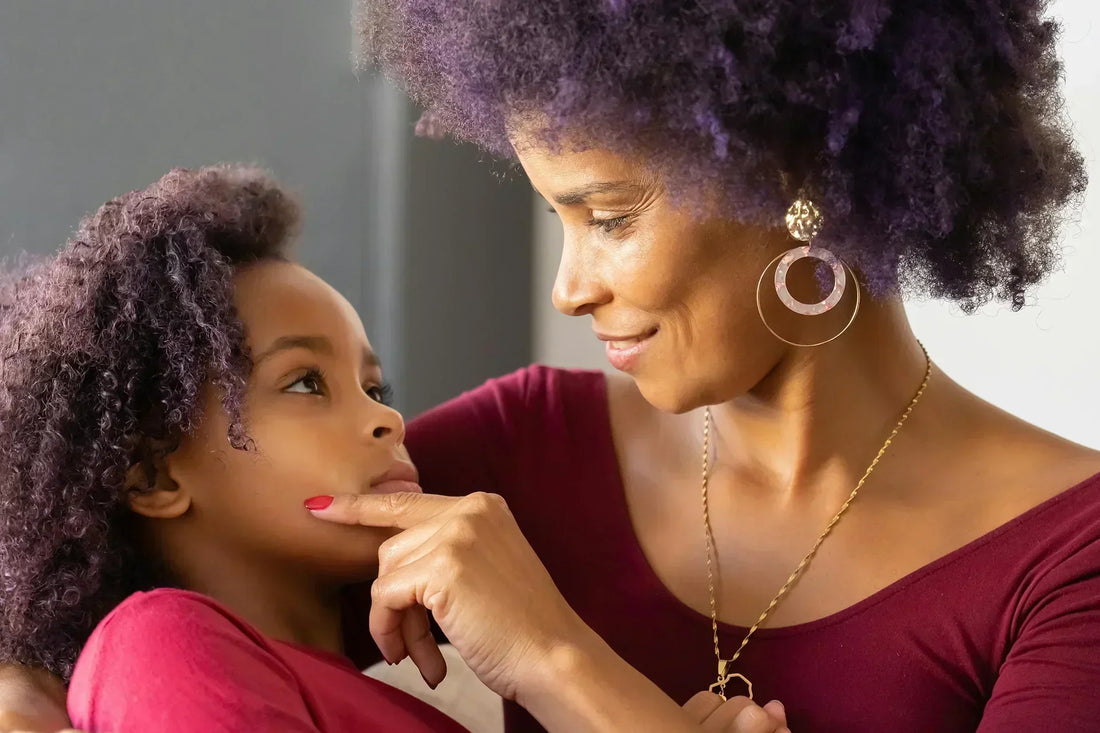
Parenting Yourself While You Parent Your Children
Theresa HubbardJust today, a client said to me, “How crazy would I look if I stopped myself in the middle of a conversation with my child and said to them, Hold on, I need a few minutes to get grounded and think about how to respond?” I said, “YES, DO EXACTLY THAT!”
Whether our children are toddlers tugging at our shirt or adult kids calling from across the country, the invitation is the same: parent yourself first, even as you parent them. It isn’t selfishness; it’s stewardship of the only instrument through which our love passes—our nervous system and sense of worthiness. How I am experiencing all of this matters.
Why “Double-Parenting” Matters
Children are incredibly attuned to the emotional “weather” in their homes. When we ignore our internal experience, we teach them, through our silence, that grown-ups abandon themselves in the name of responsibility, and that they should, too.
Conversely, when they see us pause, breathe, and offer ourselves kindness, they learn that caring for others and caring for self are not in competition with each other; they create resonance.
Try These Three Inner Parenting Experiments
1. “What age am I right now?”
When I feel “off” I ask myself, Theresa, how old do you feel right now? The answer can range from an infant on up! Naming that age lets me realize a younger part of me is driving the bus. I can then parent her first, maybe with a glass of water, three slow inhales, or a silent phrase: Sweet girl, I see you, we got this. Once she’s calmer and grounded, the fifty-something woman who actually pays the mortgage can respond to the real child in front of me.
2. Body before story.
Our culture trains us to explain feelings away. Instead, place a hand on the body region that you are most aware of, tight chest, shoulders or jaw, knotted belly—and offer two minutes of undivided attention. No fixing, just noticing. The body softens when it knows it has true voice, and children witness a vital truth: sensations are safe to feel.
3. Ask, “What would I require of a loving caretaker for my child?”
If you hired the world’s best caretaker, you’d expect them to feed your child, set boundaries, and bring in play. Those are the same for self-parenting: nourishment (real food, real rest), structure (reasonable limits on screens, schedules, and even self-talk), and joy (dancing in the kitchen counts).
When Your Child’s Growth Triggers Your Own
Many parents share with me that the teenage years feel like emotional déjà vu, and they are for me too! Our child’s first heartbreak reopens the wound we got at fifteen. Their struggle with multiplication quickly brings to the surface the math-anxious child still living inside us who knew the answer but could not show her work.
Rather than bracing for impact, try treating these moments as invitations. Sit side-by-side (literally helps the nervous system co-regulate) and name what is happening for you: “When I was your age, math made my stomach flip too. Let’s work on figuring this out together.” Shared vulnerability models resilience far better than any lecture.
Walker and I often highlight how parenting stretches well past the years of spelling tests and sleepovers. Grown children still scan us for cues about handling money, grief, or conflict. Every season of life calls us back to self-parenting to stay current, resilient, and available.

Daily Micro-Rituals for Grounded Parenting
- 60-second reset: Before walking through the door (or logging into the family Zoom), stand tall, roll your shoulders, and exhale with audible sound. This mini-ritual tells your body, We’re safe; we’re grounded; let’s do this!
- Bedside “grace note”: Keep a sticky note that reads, “I am learning, they are learning.” Touch it before turning off the light. This reframes mistakes as learning rather than character flaws.
These micro-rituals support emotional regulation in parenting, helping you stay present instead of reactive.
Parenting as a Circle, Not a Line
Parenting yourself while raising children is less a destination and more of creating a rhythm: attend inward, offer outward, return inward, repeat. You’ll still lose your cool, serve cereal for dinner, and wonder if college savings or therapy savings are the wiser investment. (Some weeks, therapy wins!) Yet each time you choose inner kindness, you plant a seed that your children will grow the rest of their lives.
So tonight, when the house finally settles and the dishes hum in the washer, place a hand on your heart. Whisper, “Sweet grown-up-in-progress—I’m here, and I won’t leave you behind.” That promise creates the foundation of every bedtime story, car-ride pep talk, and courageous boundary you will ever give your children.
Keep parenting—both of you. The world needs families where love circulates in every direction, starting with you.
If you'd like to explore more on this topic, check out our Conversations We Needed With Our Parents Growing Up YouTube playlist. We asked our community, "What is one conversation you wish your parents had had with you?" The feedback we received was significant!
Theresa